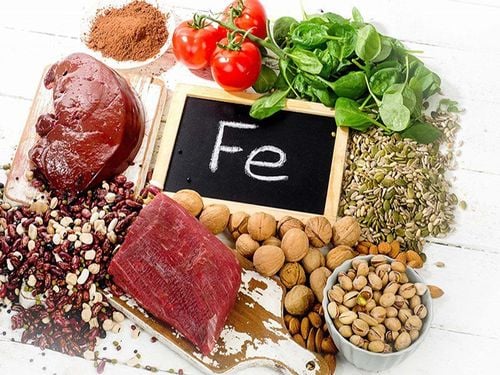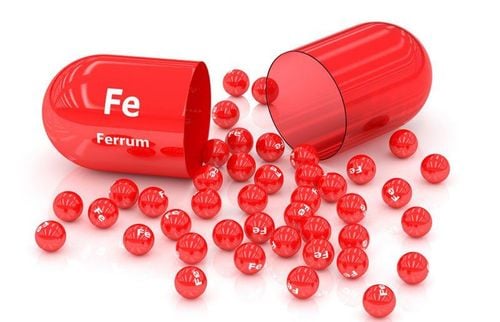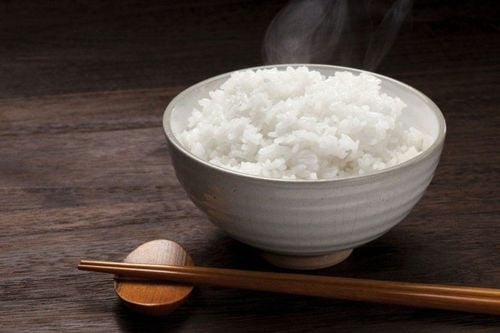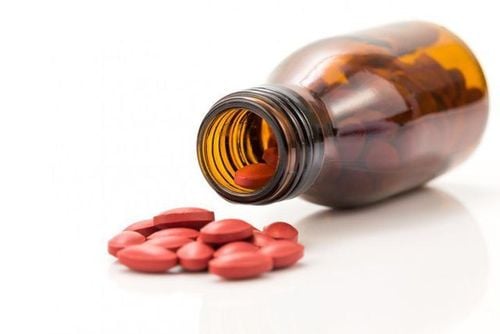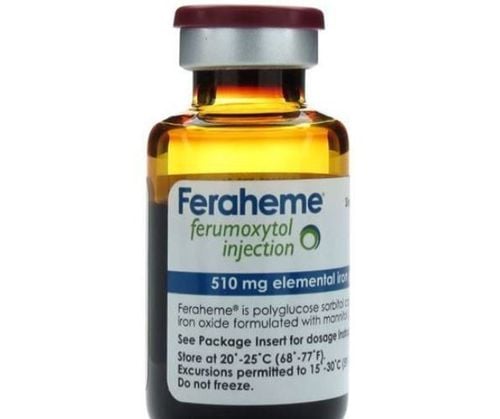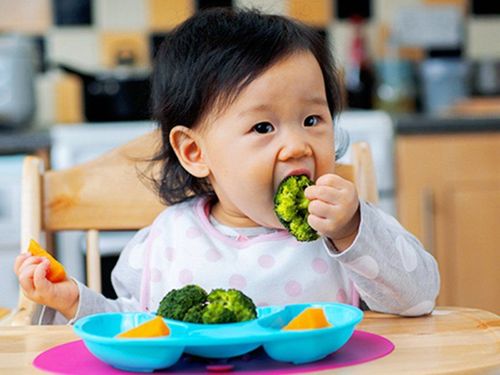This is an automatically translated article.
Iron is an essential mineral that plays a central role in many biochemical processes in the body including oxygen transport, immune support and enzyme stimulation.The recommended daily amount of iron for the body is 18 milligrams. Here are 12 healthy foods with the most iron:
1. Shellfish such as mussels, oysters, snails...
Not only delicious, but these species are also nutritious and especially rich in iron. A clam weighing about 100 grams can contain up to 3 milligrams of iron, which is up to 17% of the body's iron needs in a day.
In addition, it also provides about 24% of vitamin C needs and about 5% of vitamin B12 needs.
2. Spinach
Spinach is low in calories but offers many health benefits. About 100 grams of spinach contains 2.7 milligrams of iron equivalent to 15% of the body's needs. Although this is not heme iron and is not absorbed well, besides that, spinach contains a lot of vitamin C - a factor that helps improve iron malabsorption.
Spinach is also rich in antioxidants called carotenoids, which may reduce the risk of cancer, fight inflammation and protect vision.
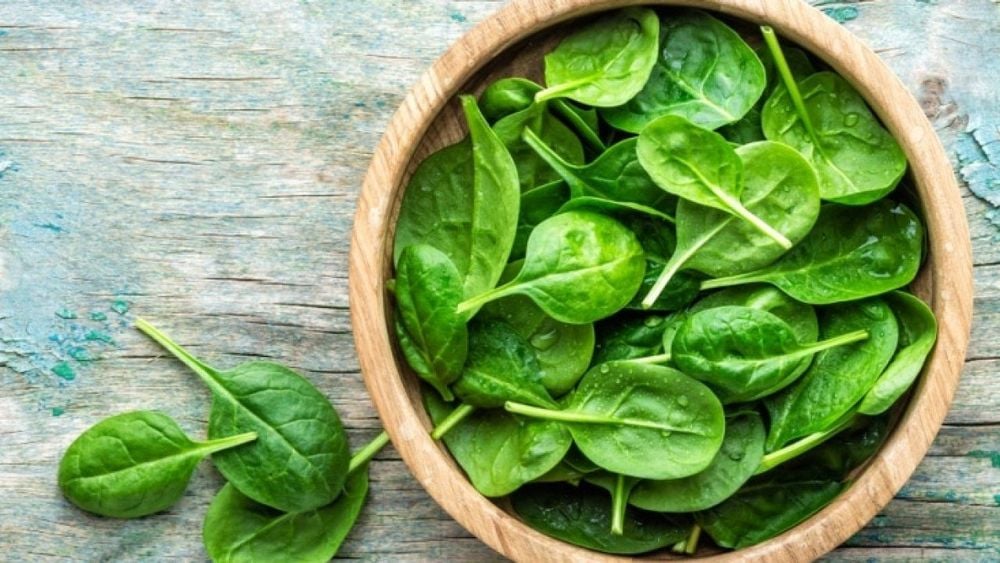
Rau bina ít calo nhưng cung cấp nhiều lợi ích cho sức khỏe người sử dụng
3. Liver and other organs
Animal organs including liver, kidney, brain and heart contain a lot of iron. A piece of beef liver weighing about 100 grams can contain up to 6.5 milligrams of iron, accounting for 36% of the body's needs. Animal organs are also rich in protein, B vitamins and copper, especially the liver contains a lot of vitamin A, which has a very dark effect on the eyes.
4. Legumes
Peas, lentils, soybeans... are ideal sources of iron for vegetarians. One cup of cooked lentils (about 198 grams) contains 6.6 milligrams of iron, equivalent to 37% of the body's needs.
Legumes are also a good source of folate, magnesium and potassium. Moreover, many studies show that they also work to reduce inflammation in people with diabetes, reduce the risk of cardiovascular diseases and aid in weight loss thanks to their high content of soluble fiber.
5. Red meat
Including pork, beef, lamb, goat.... 100 grams of ground beef contains 2.7 milligrams of iron, accounting for 15% of the body's needs. In addition, they are also high in protein, zinc, and several B vitamins.
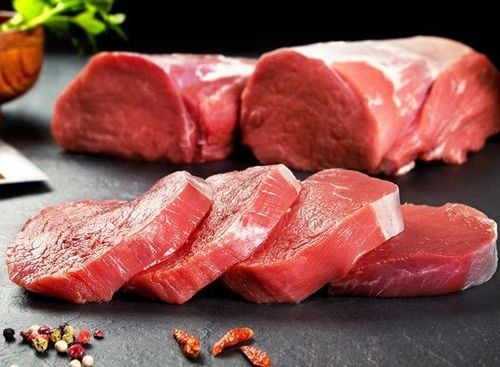
Thịt đỏ chứa protein, kẽm và một số vitamin B tốt cho sức khỏe người dùng
6. Pumpkin Seeds
In 28 grams of pumpkin seeds contain 2.5 milligrams of iron, accounting for 14% of the body's needs. In addition, pumpkin seeds are also a good source of vitamin K, zinc, manganese and magnesium that help balance blood sugar levels.
7. Quinoa
Quinoa is a common grain in the Americas. One cup of cooked quinoa, equivalent to about 185 grams, can give 2.5 milligrams of iron, which is 16% of the body's needs.
In addition, quinoa does not contain gluten, so it is very suitable for people with this intolerance disorder. They also have a much higher protein, folate, and magnesium content than other grains.
8. Turkey
100 grams of turkey can provide 1.4 milligrams of iron, accounting for 8% of the body's needs. In addition, they also contain up to 28 grams of protein, about 32% of the need for zinc, and 57% of the body's need for selenium.
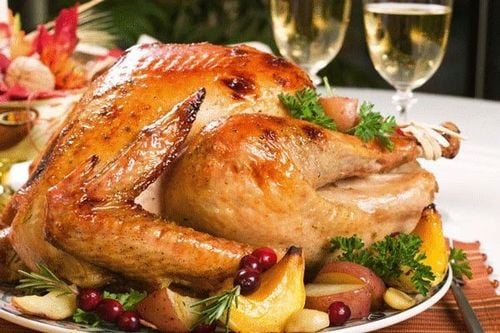
Gà tây là món giàu dinh dưỡng cung cấp lượng lớn kẽm và protein
9. Broccoli
In addition to providing iron, broccoli also contains a large amount of vitamin C to support the body's maximum absorption of iron. Besides, they are also high in folate, fiber and vitamin K.
10. Tofu
In 126 grams of tofu can provide 3.4 milligrams of iron, accounting for 19% of the body's needs. Tofu is also a source of thiamine and a number of minerals such as calcium, magnesium, selenium....
Tofu also contains compounds called isoflavones, which improve insulin's ability to work, reduce the risk of diabetes diabetes, cardiovascular disease, and relief of perimenopausal symptoms in women.
11. Dark Chocolate
Is one of the foods that provide the most iron. Every 28 grams of dark chocolate provides the body with 19% of the need, equivalent to about 3.4 milligrams of iron.
Dark chocolate and cocoa powder have more antioxidant activity than blueberry powder and juices. In addition, they also have the ability to reduce cholesterol in the blood thereby reducing the risk of cardiovascular diseases.
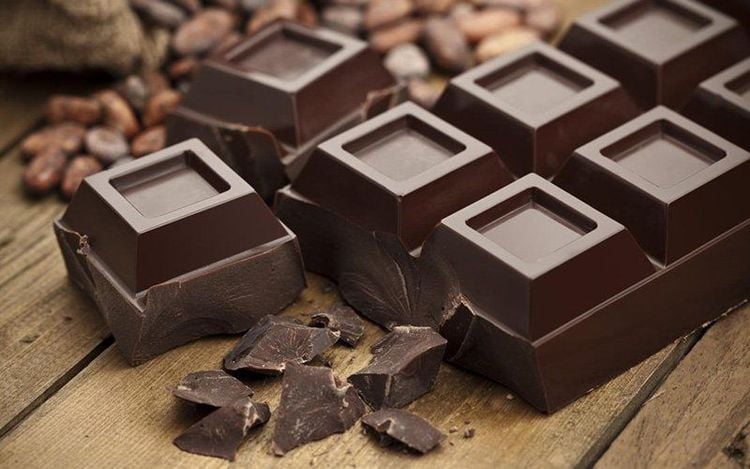
Người dụng có thể lựa chọn Sô cô la đen để bổ sung hàng ngày
12. Fish
Fish is an indispensable dish for every family. Fish, especially tuna, are rich in iron. About 85 grams of tuna provides 1.4 milligrams of iron, approximately 8% of the body's needs. Fish is also rich in omega 3, a fatty acid that is beneficial for the cardiovascular system, nervous system as well as the immune system, in addition to other nutrients such as niacin, selenium and vitamin B12.
The human body cannot produce iron on its own, but also consumes it in a number of processes such as: Menstrual period, defecation, urination, sweating and exfoliation...
Iron deficiency is nutritional deficiencies, especially among women of childbearing age and children. Iron deficiency also reduces immunity, reduces physical activity and cognitive decline.
Any questions that need to be answered by a nutritionist at Vinmec International General Hospital, you can contact Vinmec Health System nationwide or register online HERE.
References: spatone.com, healthline.com
MORE
How is Iron metabolized in the body? To prevent the body from iron deficiency anemia How to treat iron deficiency anemia?




